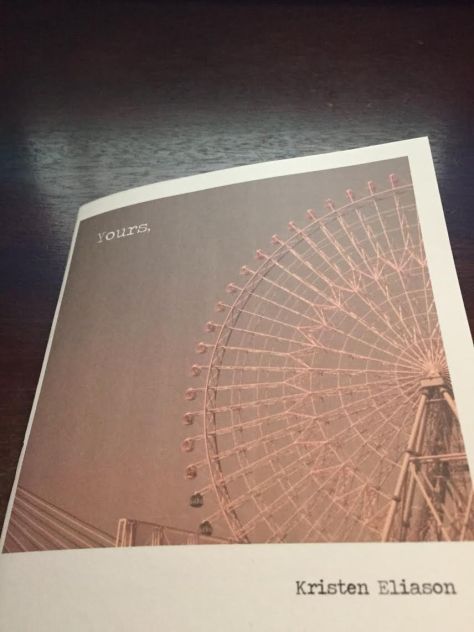 Above All Else, the Trembling Resembles a Forest by Louise Mathias
Above All Else, the Trembling Resembles a Forest by Louise Mathias
My rating: 5 of 5 stars
What a graceful wrecking ball of a book; or, to steal from it, from the poem ‘The 10:15 to Cambridge’:
“That the on-coming train
was a pack of the shyest white horses.”
This new chapbook from the always luminous and serrated-blade Louise Mathias (and one must nod deeply to David Dodd Lee’s cover for it, to call it arresting is to criminally understate its power) is full of such moments. I can’t somehow get past some cliche or another about a cracking whip when I think about Mathias’s lines, the way they flow out so elegantly only to suddenly incur a wrath of image and noise once fully extended. I often had the feeling of being suddenly jolted out of a dream, or rather from one dream into another.
Again a line from the book itself seems all too appropriate in describing it; from the poem ‘Orion’:
“At first
the motion startles,
then the mass.”
Something always enjoyable to me is a complex air of confidence to Mathias’s speaker, something coquettish toward a sly, trickster arrogance but never quite getting there, moving around a sort of nearly invisible presence of unfiltered emotion known, like a black hole, but it’s dark inescapable shape. I always feel Mathias is not only fully aware of these tonal lattices but in turn makes them part of the trick and game. From the poem ‘Twentynine Palms’:
“Is that what you wanted? Subtle? The luke warm
politics of someone else’s marriage?”
Tremors and oscillations flutter throughout, one’s feet shake though never quite go out from under. Memory and closeness in body and emotion to a specific other seem so important here, and as Mathias points out in the poem ‘Blue Cogs of a Secret’.
“How a memory–(fur, being charred)
must be stubborn, or quit.”
I feel so many memories in these pages, both the stubborn ones kicking up dust and the ones that quiet, the ones whose faint fingerprints and voices still echo about somewhere. I’ll end with some lines from the poem ‘Snuff’, the poem that barely left me standing. Buy this chapbook. Mathias is a blasting wonder. Cheers to Burnside Review Press for lending the fuse and powder. The scent of flowers and cordite hover all around this book.
“You can exit the city of ghosts. You can’t exit
a tremor.
…
Fog on the film. I said, my bones are gone.”
View all my reviews






